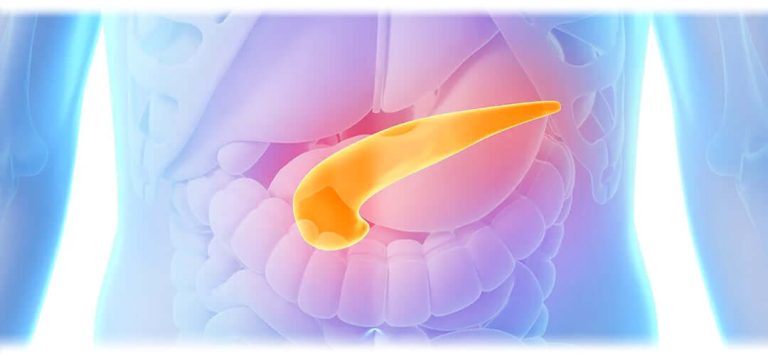There are many different theories about how to improve brain health.
As with all things health-wise, trying to stay as fit and active as possible and making sensible lifestyle choices will stand you in good stead. A healthy brain and strong memory can help you maintain your physical, mental and emotional wellbeing.
Your brain is a vital organ that is responsible for many essential functions, from regulating your mood, feelings and emotions to sending the signals around the body that control the way you move and communicate. Poor brain function can impair the way your other key body systems work, including your circulation, nervous system and immune response.
It can also have a significant impact on your memory, focus, intelligence and concentration, affecting the way you perform at work, develop relationships and interact with other people. So, keeping your brain in tip-top condition will help you live a long and happy life. Read on to discover how to improve brain health.
What Is Brain Health?
A healthy brain is key to living a long and fulfilling life. If your brain is healthy, you’ll be able to communicate, solve problems, concentrate, remember things and connect with people much better. Unfortunately, your brain starts to deteriorate as you age, which can impair its function and have a knock-on effect on other aspects of your health.
Your brain changes as your life progresses, adapting to the things you experience and learn and regulating your response to everything from illness and stress to social interactions and intimacy. However, as your brain gets older, it starts to change and cause a gradual decline in your mental capabilities. This can lead to you becoming less focused and more forgetful.
Age-related mental deterioration can lead to a host of severe conditions including stroke, Alzheimer’s and other forms of dementia, as well as impact your mental health. Taking steps to boost your brainpower and improve your memory can help stave this off and maintain better mental function in later life.

What Food Promotes Brain Health?
Your diet and lifestyle can play a big role in keeping your brain healthy. Alcohol, smoking and too much sugar can all damage brain cells and impair your mental function, so you should only indulge in moderation.
There are, however, certain foods which are known to boost brain power and strengthen this vital organ. Fatty fish, such as salmon, trout, mackerel and sardines, are rich in Omega-3 fatty acids, which your body uses to build brain and nerve cells.
Coffee is rich in antioxidants, which can help prevent brain-cell damage from oxidative stress, as well as caffeine which, in moderation, can improve focus, concentration and mental performance. Be careful, though. Too much can leave you feeling anxious and restless and make it harder to sleep.
Fresh berries, citrus fruit, red peppers and tomatoes are all high in Vitamin C, a powerful antioxidant which fights the damage caused by harmful free radicals.
Dark, leafy greens, meanwhile, are high in Vitamin K, a fat-soluble nutrient that is used to build brain cells.
And seeds and nuts, especially pumpkin seeds, are packed with brain-enhancing minerals including Zinc, Copper, Iron and Magnesium, which help prevent the onset of a host of neurological conditions including Alzheimer’s and dementia.
What Supplements To Take For Brain Health?
As we said earlier, Omega Fatty Acids provide the building blocks for brain cell membranes and have multiple health benefits for the whole body. They play an essential role in developing strong bones and joints as well as keeping the heart and circulatory system healthy.
Vitamin B3 (Niacin) contributes to normal brain and nervous system function, while Vitamin B5 (Pantothenic Acid), aids mental performance. You can get both from a good Vitamin B-Complex supplement.
The antioxidants in Brain-Protex are known for their effectiveness in enhancing learning capabilities, improving information retention and boosting concentration levels. They can also help improve mental clarity and function and stave off age-related memory loss.
Ginkgo Biloba, meanwhile, is another powerful antioxidant which protects cells from oxidative stress by stabilising harmful free radicals.
If you don’t want to go down the supplement route, there are several aromatherapy essential oils which are renowned for the way they can help improve brain function and mental clarity. Use a diffuser to release their fragrance throughout the day, or try a few drops in a nice, warm bath.
Geranium essential oil has a sweet, citrusy, floral aroma which helps calm nerves and ease emotions. The spicy aroma of Basil essential oil relieves tension and fatigue and promotes mental clarity. Rosemary essential oil has a rich, warm and woody aroma that can help combat lethargy and weariness and improve memory. And Lemongrass essential oil has a stimulating, uplifting and revitalising herbal aroma that can help promote a positive outlook and boost self-esteem, confidence and mental strength.

What Are The Best Exercises For Brain Health?
Your brain is a vital organ made up of a complex network of blood vessels and cells. It needs a good supply of oxygen to survive. So, when it comes to exercising to improve brain health, anything which elevates your heart rate and gets the blood pumping will help.
Aerobic activities such as running, swimming, dancing, walking or cycling will all help to not only strengthen your heart and circulatory system but can keep your brain healthy too. Spending time outdoors or in the gym working out can also help improve your mood and mental health, as well as improve your confidence and self-esteem and flood your body with feel-good hormones. Aside from physical exercise, there are other activities you can do to boost your brainpower.
Reading, doing crosswords and other puzzles will keep you mentally sharp and can help improve your memory in later life. Meditating, journaling or practising mindfulness can help you clear your mind of worry, stress and negative thoughts and enhance your mental clarity.
Spending time with your friends and family can also help keep you mentally and socially active, which is important in later life, as isolation can have a big impact on your mental health. Whatever you decide, looking after your brain as you will get older will help you to lead a longer, happier and more fulfilling life.






